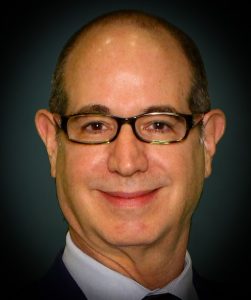Mark D. Herbst, M.D., Ph.D.

Dr. Herbst is a board certified M.D. radiologist with a Ph.D. in physical chemistry who completed a fellowship in MRI and is now practicing in St. Petersburg, Florida. He is a nationally known expert in MRI, but he reads all kinds of medical images in his clinical practice, including x-rays, CT scans, ultrasounds, and nuclear medicine scans, specializing in musculoskeletal radiology and neuroradiology. He is a senior member of the American Society of Neuroradiology.
Dr. Herbst has taught MRI physics to technologists at St. Petersburg College, radiology to medical students from University of South Florida, Lake Erie College of Osteopathic Medicine, Nova Southeastern University College of Osteopathic Medicine, and Edward Via College of Osteopathic Medicine, and image interpretation skills to resident physicians and fellows in the Obstetrics/Gynecology, Sports Medicine, and Family Practice programs at Bayfront Medical Center in St. Petersburg.
Dr. Herbst also lectures to physicians, attorneys, and insurance case managers around the country about radiology subjects such as MRI, radiology errors, disc herniations, and brain injury.
Attorneys from the United States and Canada send medical images to Dr. Herbst for his unbiased review. As a pre-trial consultant, he tells attorneys what the images show and perhaps just as important, what they do not show, which helps plaintiff and defense attorneys alike decide how to move forward with their malpractice or personal injury cases.
Since 2018, Dr. Herbst has limited his attorney review work to those that include brain imaging of some kind. In those cases, he will review and testify about the brain imaging and also about any other imaging studies provided, so the attorney would not have to hire another radiologist for the non-brain images. Occasionally, he will consider taking on other cases that do not involve brain studies, if they involve egregious malpractice, unusual circumstances, are part of complex civil or criminal cases, or contain especially interesting imaging findings.



